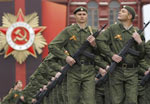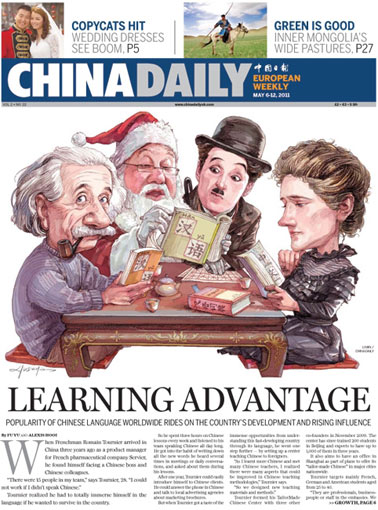Politics
Cubans may be allowed to travel abroad as tourists
Updated: 2011-05-11 07:41
(China Daily)
HAVANA - Cubans will be allowed to travel abroad as tourists for the first time in more than 50 years, the government announced on Monday.
"Study a policy that allows Cubans living in the country to travel abroad as tourists," reads one of the points on a government document listing 313 reforms approved at April's Sixth Congress of the Communist Party of Cuba.
The document gave no further details of the travel policy or a date at which it would be implemented, but it was seen as an official decision by the government to authorize foreign travel as part of a series of landmark reforms.
Travel abroad is not banned, but Cubans who want to leave the island need an invitation letter from abroad.
A $150 fee is then required for an exit request. Travel abroad has been limited to 30 days, and the paperwork authorizing foreign travel amounts to around $400 - unthinkable for most Cubans, who earn about $20 a month.
Up to now, travel outside Cuba has been limited mainly to artists, scholars, athletes and a small number of business people.
Following the 1959 revolution, the Cuban government gave tourist exit visas to exemplary workers who were rewarded with travel to Eastern Europe and the Soviet Union.
Since the collapse of the Soviet Union, this practice has been largely curtailed.
The policy shift is part of a series of reforms announced by President Raul Castro to give a jolt to Cuba's economy.
In other significant changes, the government says Cubans will be allowed to buy and sell automobiles or homes, and bank loans are to become more readily available.
Around 90 percent of Cubans own their homes or pay modest rent to the state. Those who are homeowners pay no taxes on the property but cannot sell their homes.
Some Cubans get around this through a home exchange called "permuta" in which two homeowners agree on a swap. This has led to an underground market in which large sums of money can be exchanged for property deals.
Similarly, cars can be sold by private parties only with government permission or if they were made before the revolution. As a result, there is a vast market for 1950s-era US-made automobiles such as Buicks and Cadillacs.
Another reform calls for the possible liquidation of money-losing state-owned enterprises, if they have "recurrent financial losses, insufficient ... means and are unable to respond to contractual obligations".
Another foresees the creation of cooperatives in some sectors aimed at spawning small private companies.
Cuba is also seeking to decentralize its agricultural production, hoping to boost output in a country where 80 percent of food is imported.
Agence France-Presse
E-paper

War of the roses
European Chinese rose growers are beating their Chinese rivals at their own game
Preview of the coming issue
High-tech park gets big boost
At the source
Specials

Sino-US Dialogue
China and the US hold the third round of the Strategic and Economic Dialogue on May 9-10 in Washington.

Drunk driving
Drunk drivers face a detention for one to six months and a revokation of their drivers' license.

V-Day parade
A military parade marking the 66th anniversary of the Soviet victory over Nazi.
